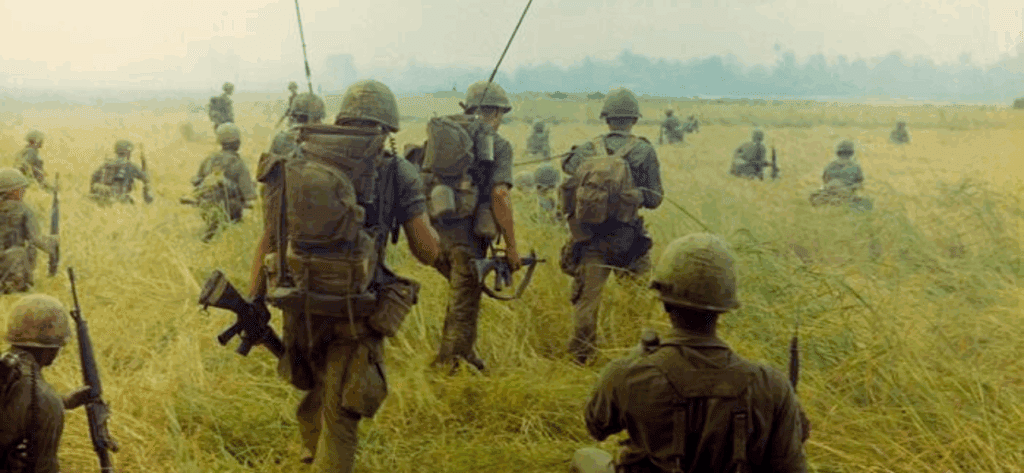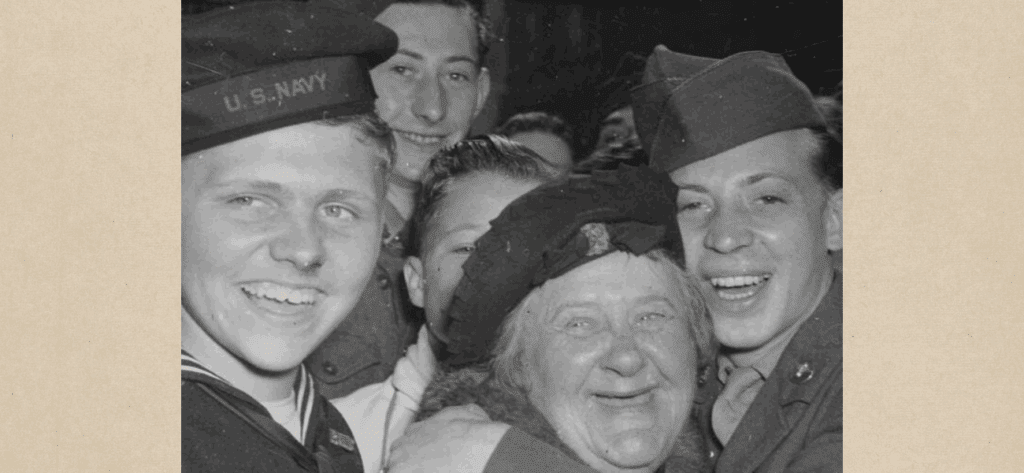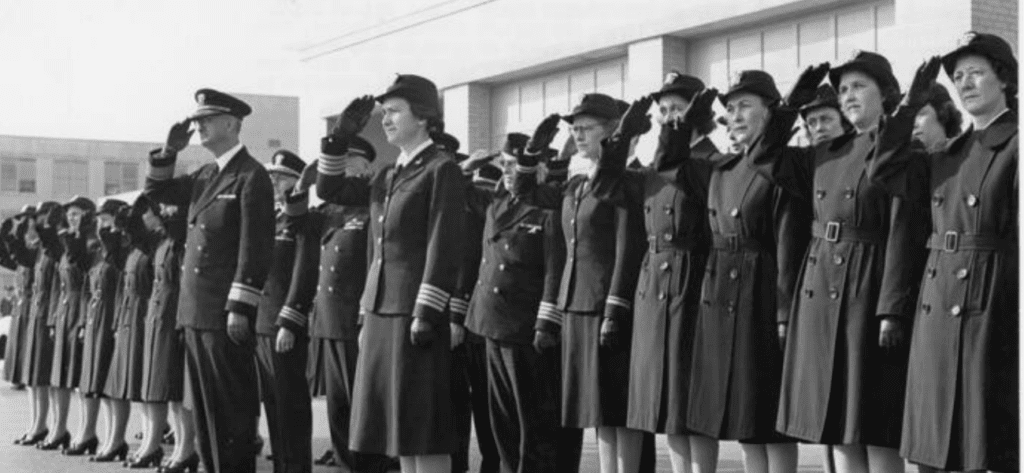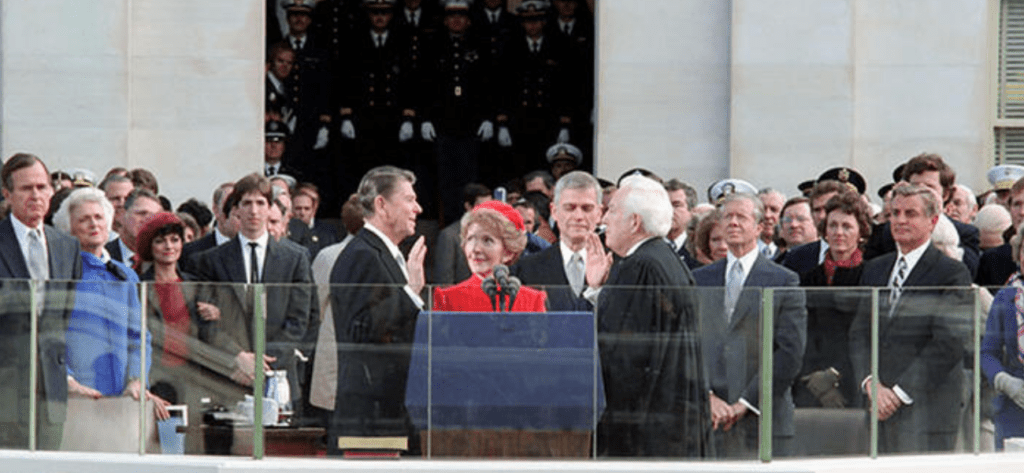On October 20, 1774, the First Continental Congress adopted the Articles of Association in response to the “Intolerable Acts” the British government had imposed on its subjects in the colonies. These punitive laws were passed in response to patriot uprisings in the north, particularly the Boston Tea Party in late 1773. The Articles of Association proposed a boycott on goods produced in Britain and its colonies, and also provided for the correct conduct of colonists during the boycott.
Throughout the mid-1700s, the colonists had become increasingly angry with British Parliament. To pay for foreign wars, Parliament had passed a series of laws that negatively impacted those in the colonies. Colonists felt that these laws were unjust, as they did not have direct representation in the distant British Parliament, and thus had no opportunity to defend their position. Tensions came to a head in late 1773 when a band of patriots dressed as Native Americans boarded East India Company ships docked in Boston Harbor and threw overboard 242 chests of tea. This act of defiance and vandalism sparked an intense reaction from the British Parliament.
“The Intolerable Acts” was the nickname the colonists gave to the harsh laws that Parliament enacted in the wake of the Boston Tea Party. They were designed to suppress the patriot movement in Massachusetts by massively curbing the rights of people living there. Representatives from each of the colonies (excluding Georgia) came together in September 1774 to protest these laws and to form the First Continental Congress.
The result of this first Congress was the Articles of Association of the Congress. This document proposed a boycott on the import and export of goods from Britain and its other colonies to take effect December 1, 1774. The delegates of the First Continental Congress were careful not to criticise the king, but express their unhappiness at the current state of affairs. The Congress used the Virginia Association, which wished to increase cooperation between the colonies, as its template. The document was signed by 53 delegates, including George Washington, John Adams, and Peyton Rudolph, who was President of the First Congress.
Clauses within the document announced a ban of the slave trade, severance of all economic ties with Britain, and the desire to improve agriculture and industry with the colonies, and to provide produce for colonists at a reasonable price. There was also provision for the correct conduct for colonists to undertake during the boycott: no “cock fighting, exhibitions of shews, plays, and other expensive diversions and entertainments,” and no purchasing of expensive mourning clothes after the death of a relative.
The boycott was relatively successful while it lasted, and succeeded in damaging the British economy. The Crown responded in 1775 with the New England Restraining Act which failed to rein in the colonists and facilitated the start of the Revolutionary War.
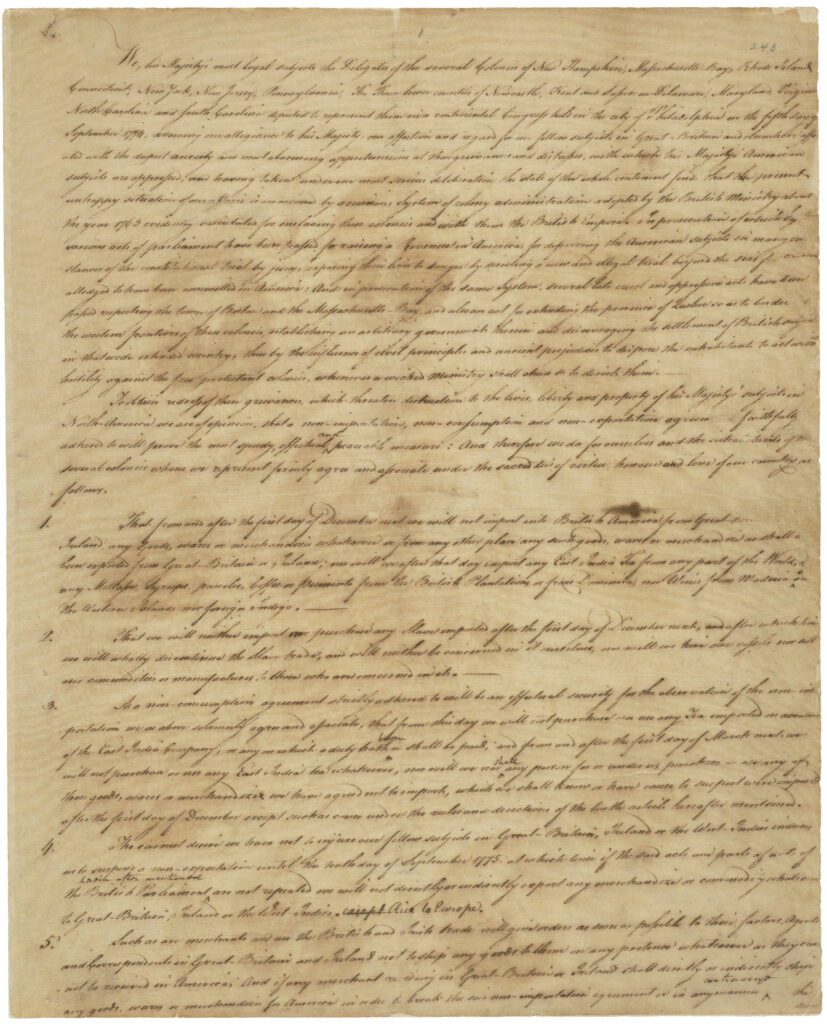
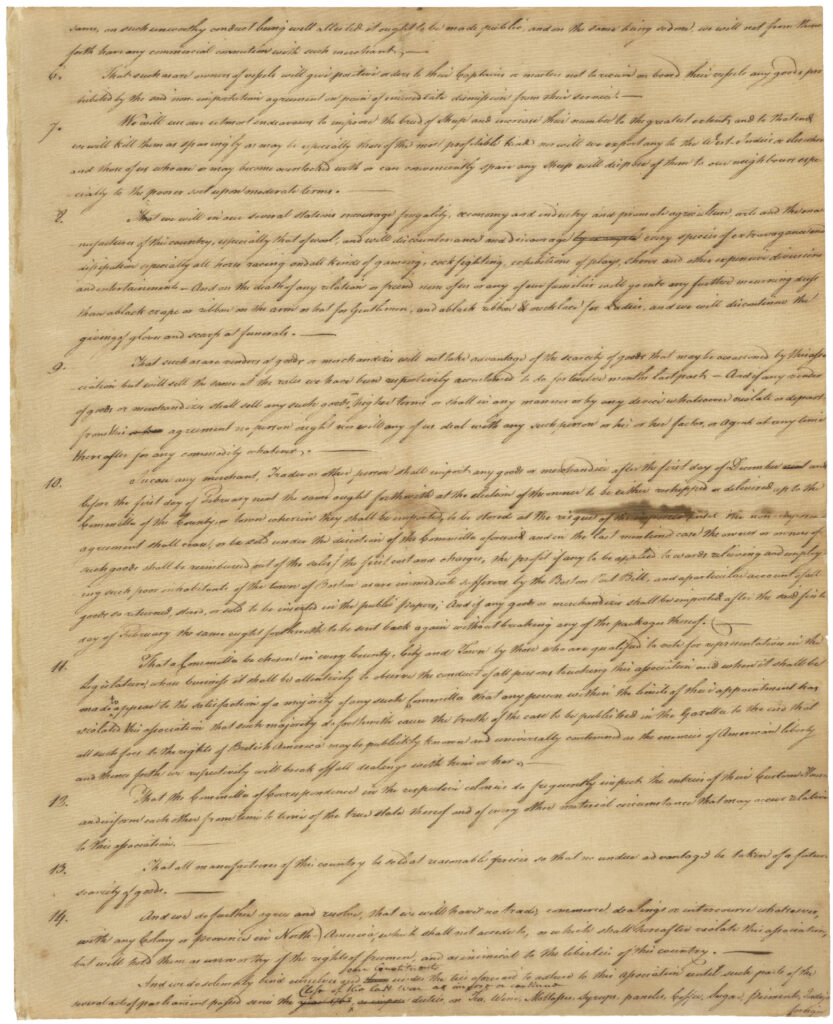
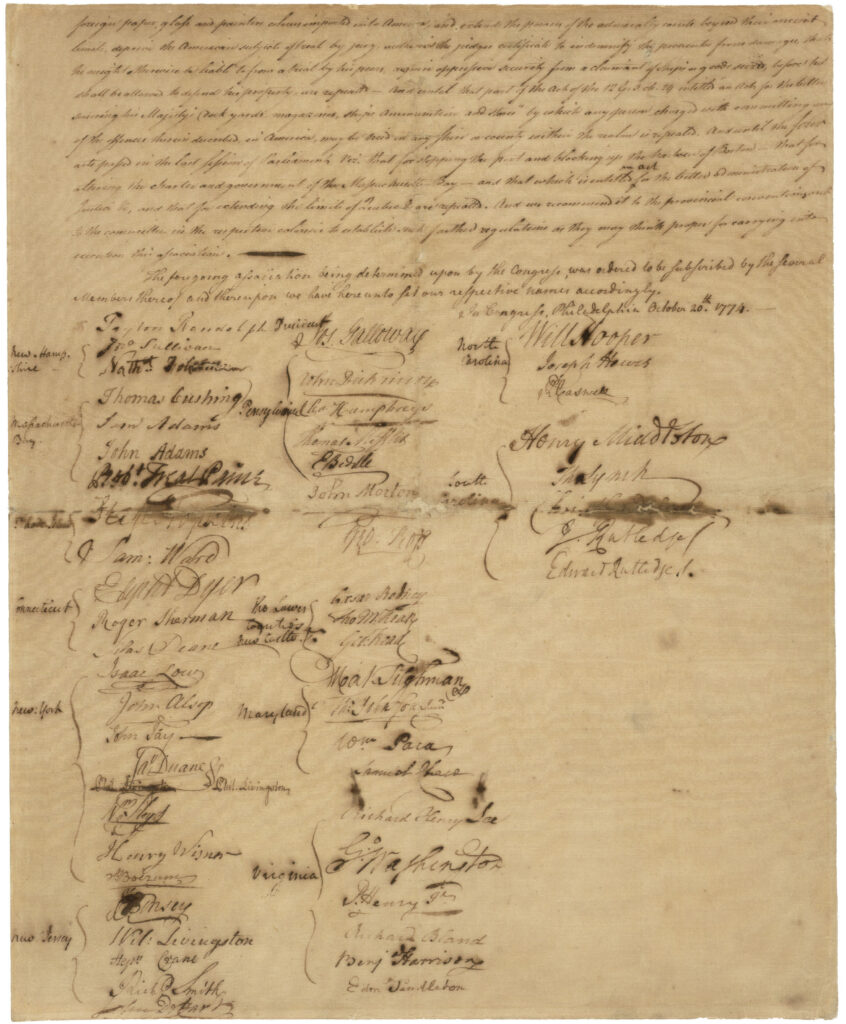
Download a high-resolution version of this document from the National Archives’ online catalog.
This document was on display in the “Featured Documents” exhibit in the East Rotunda Gallery of the National Archives in Washington, DC, June 4 through July 29, 2015.
The National Archives Museum’s “Featured Document” exhibit is made possible in part by the National Archives Foundation through the generous support of The Coca-Cola Company.
